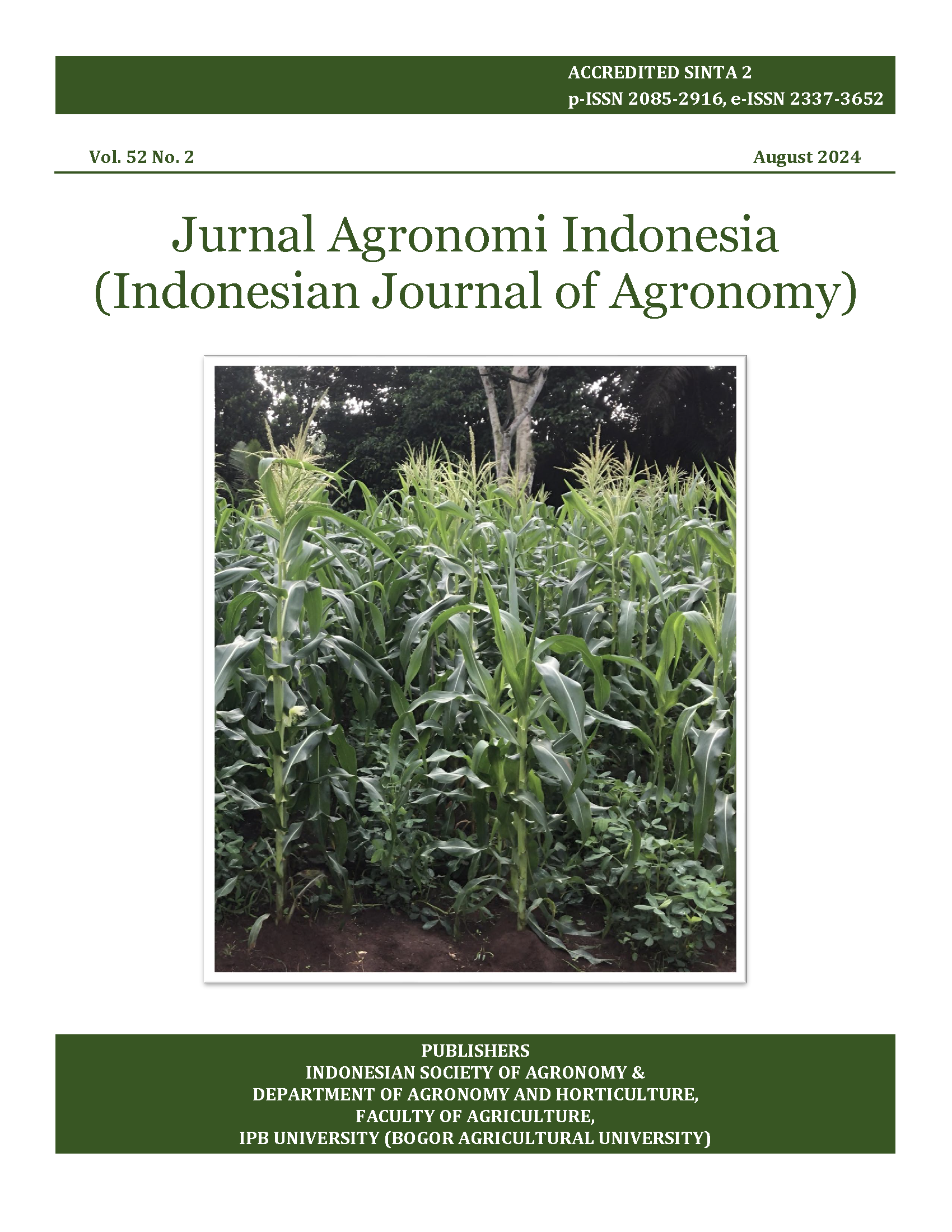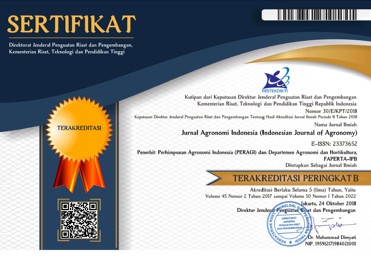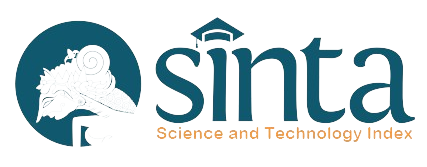Evaluation of Wedelia water extract on soybean, purple nutsedge, and billygoat seeds germination
Abstract
Weeds cause significant yield loss in many agriculture crops; thus, management practices are urgently needed to alleviate losses while conserving environmental and human health. This study aimed to evaluate the allelopathic potential of Wedelia leaf and flower extracts on the germination and early growth stage of three plant species. The research was conducted using a completely randomized design experiment with two factors and four replicates. The first factor was extract sources: leaves (S1) and flowers (S2). The second factor was the concentration: control (C0) and extract concentrations of 1% (C1), 5% (C5), and 10% (C10). The extract was tested on three different plant species: soybean (Glycine max), nutsedge (Cyperus rotundus), and billygoat weed (Ageratum conyzoides). Fifty seeds of three different plants were germinated separately in Petri dishes and treated using Wedelia extracts. The allelochemicals in Wedelia leaf and flower extracts inhibited germination and induced abnormal sprouting. Wedelia leaf extract showed the most pronounced inhibitory effects and highest inhibition levels across all measured parameters. Moreover, a clear concentration-response relationship was observed, where increased extract concentration increased the degree of inhibition. These findings contribute to the development of bioherbicides and can help reduce the use of synthetic herbicides for more sustainable agriculture.
Keywords: Ageratum conyzoides, bioherbicide, Cyperus rotundus, Glycine max, weed control













